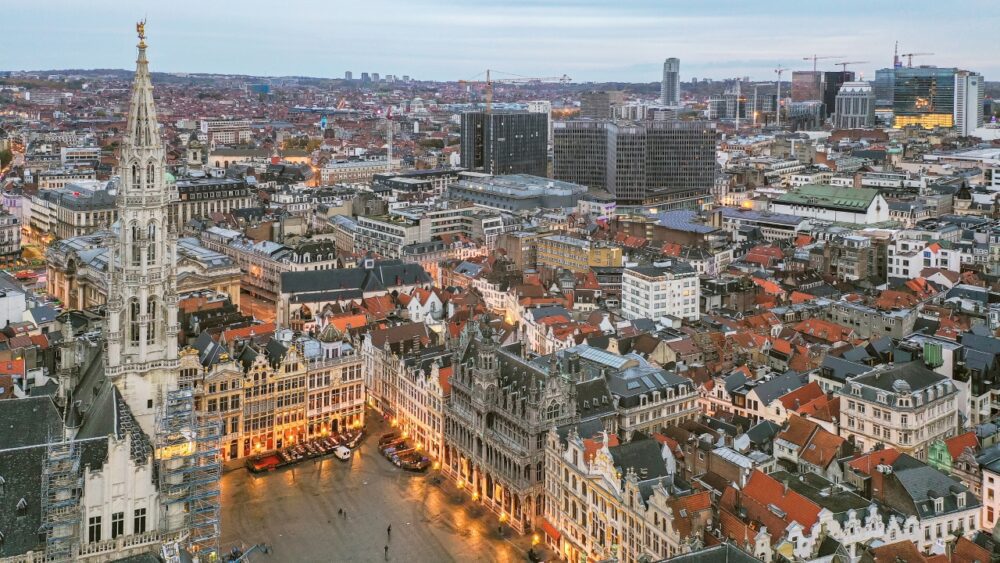
Is Brussels worth visiting? In my opinion, it absolutely is. When I first visited Brussels, I wasn’t sure what to expect beyond waffles, chocolate, and the European Union. What I found was a city full of surprises—beautiful architecture, lively squares, and a quirky sense of humour that gives it a character all its own. Whether I was marvelling at the ornate Grand Place or snapping a photo of the cheeky Manneken Pis, Brussels left a lasting impression.
As the capital of Belgium, Brussels is a city that seamlessly blends history with modernity. Known for its stunning Art Nouveau buildings, vibrant food scene, and political significance as the headquarters of the European Union, it’s a destination that caters to all kinds of travellers. From the bustling markets of the Marolles district to the tranquillity of Cinquantenaire Park, there’s something for everyone. But is Brussels worth visiting for you?
In this blog post, we’ll explore the top 10 reasons why Brussels should be on your travel list, from its iconic landmarks to its hidden gems. We’ll also share travel tips to help you make the most of your visit. Keep reading, and by the end, you’ll see why Brussels is more than just a stopover—it’s a city worth exploring.
Table of Contents
Pros – Reasons You Should Visit Brussels
1. A Beautiful Blend of Historic and Modern Architecture
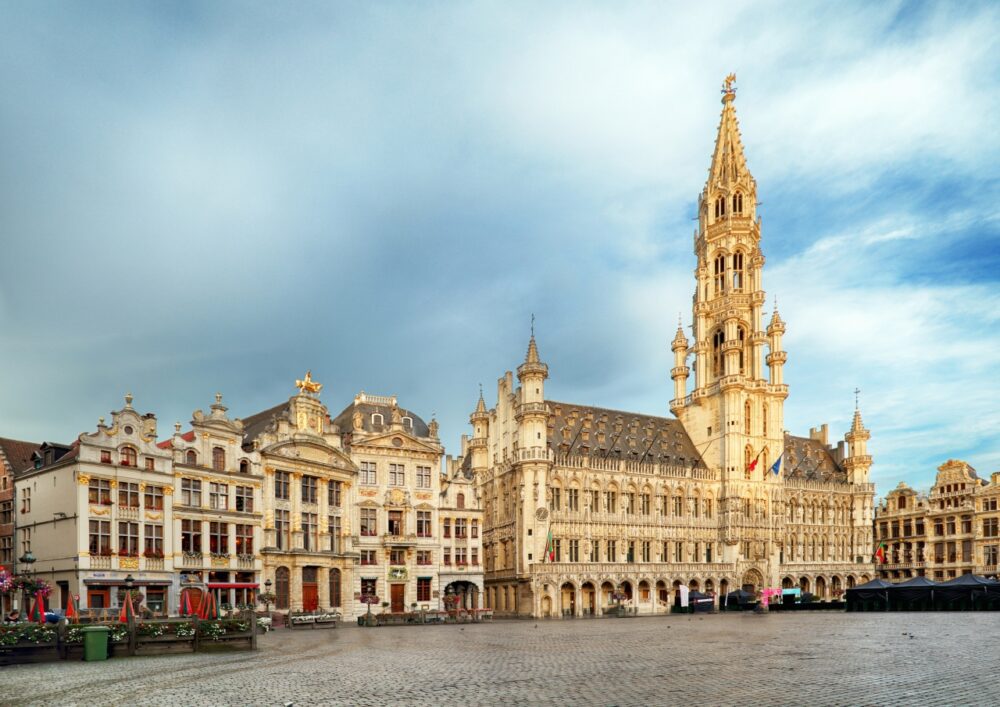
Brussels is a fascinating mix of medieval charm and sleek modernity, making it one of the most architecturally diverse cities in Europe. The Grand Place, the city’s historic central square, is a masterpiece of Baroque and Gothic architecture, while the European Quarter showcases contemporary glass skyscrapers and government buildings.
I was mesmerised by the Grand Place, with its ornately decorated guildhalls, intricate gold detailing, and the towering Brussels Town Hall. The square is even more stunning at night when the buildings are beautifully illuminated. Just a short walk away, I found sleek, futuristic structures like the European Parliament and the Atomium, proving that Brussels is a city that embraces both tradition and innovation.
2. The Grand Place is One of the Most Stunning Squares in Europe
Brussels’ Grand Place is often ranked among the most beautiful squares in the world, and it’s easy to see why. This UNESCO-listed site is surrounded by opulent buildings that date back to the 17th century, each one with its own unique character and intricate detailing.
I arrived early in the morning to take in the atmosphere before the crowds arrived, and the peacefulness made it even more magical. Later, I returned in the evening to see the square lit up, which gave it a completely different charm. If you visit in August during the Flower Carpet festival, the entire square is covered in a massive floral design, making it even more spectacular.
3. The City is a Paradise for Chocolate Lovers
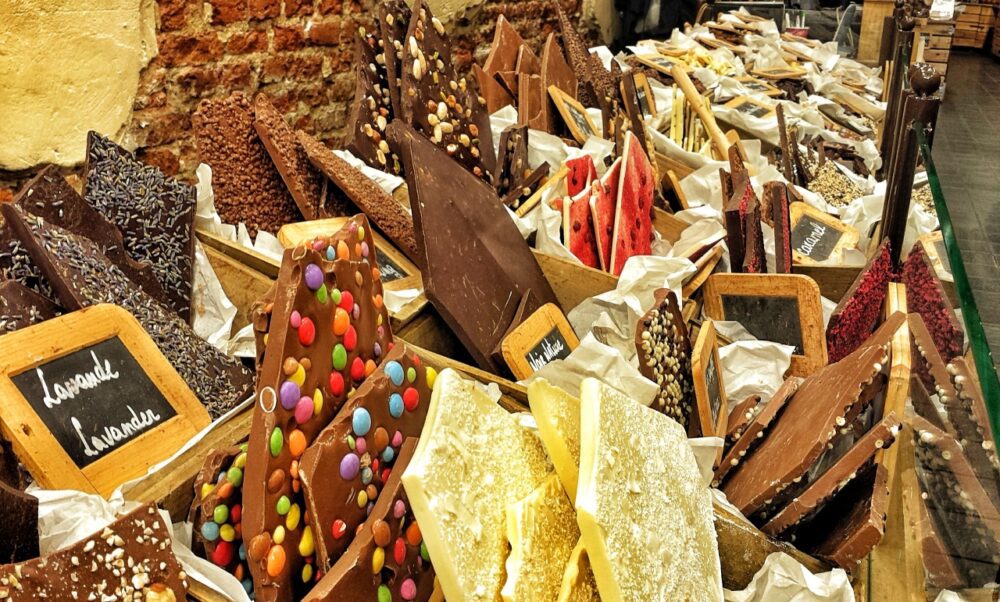
Belgium is world-famous for its chocolate, and Brussels is the best place to indulge in this sweet tradition. The city is filled with artisanal chocolatiers, offering everything from rich pralines to delicate truffles, all made with the highest quality ingredients.
I visited several legendary chocolate shops, including Pierre Marcolini and Neuhaus, where I sampled some of the smoothest, most decadent chocolates I’ve ever tasted. Many shops also offer tasting sessions and chocolate-making workshops, which provide a deeper appreciation for the craftsmanship behind every bite. If you love chocolate, Brussels will feel like heaven.
4. Belgian Waffles are as Delicious as Everyone Says
Brussels is home to some of the best waffles in the world, and trying one fresh off the iron is a must. The city has two main types: the light and crispy Brussels waffle, and the denser, caramelised Liège waffle. Both are delicious and can be enjoyed with a variety of toppings.
I grabbed a warm waffle from a street vendor and kept it simple with just a dusting of powdered sugar. The crispy exterior and soft, airy interior were absolutely perfect. Later, I tried a more indulgent version topped with Belgian chocolate and fresh strawberries, which was just as amazing. No matter how you like them, Belgian waffles are an essential part of any trip to Brussels.
5. The Beer Culture is World-Class
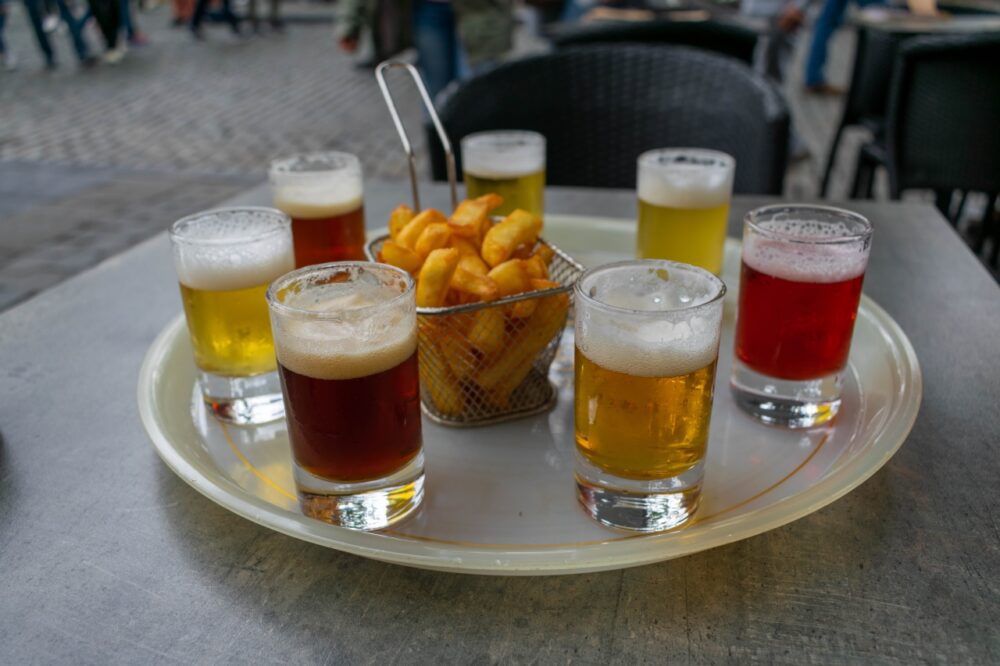
Belgium is home to some of the best beers in the world, and Brussels is the perfect place to explore its rich brewing tradition. From Trappist ales brewed by monks to fruity lambics and refreshing wheat beers, there’s something for every beer lover.
I visited the legendary Delirium Café, which has a beer menu with over 2,000 options. The atmosphere was lively, and it was a great place to chat with locals and fellow travellers over a pint of strong Belgian ale. If you prefer a quieter setting, there are plenty of cosy, traditional beer bars where you can enjoy a carefully poured Westmalle Dubbel or a refreshing Kriek cherry beer.
6. The Atomium is One of Europe’s Most Unique Landmarks
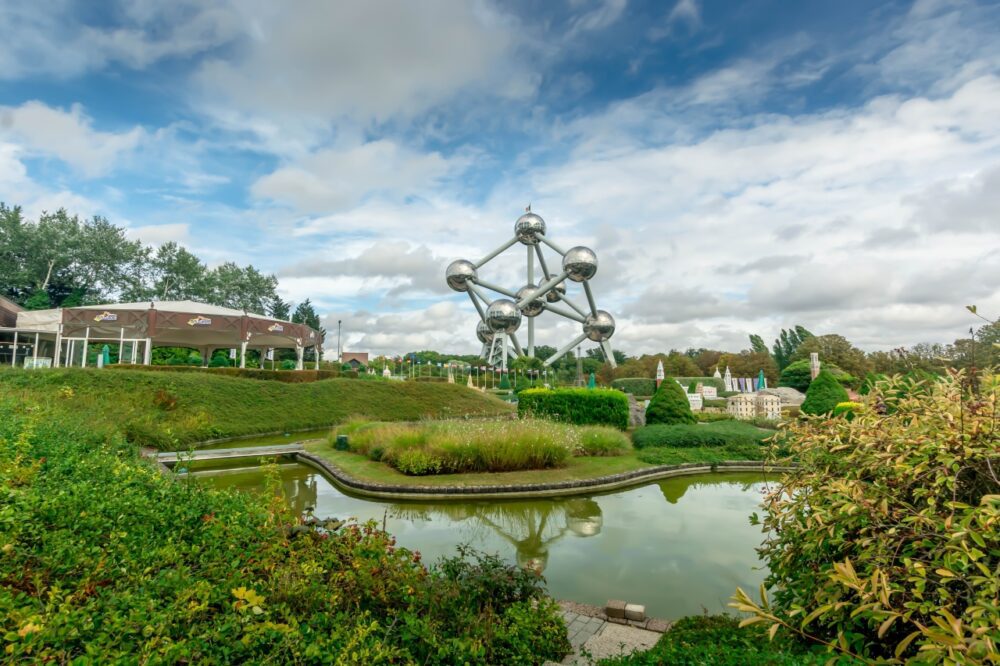
The Atomium is one of the most unusual and futuristic landmarks in Europe, originally built for the 1958 World Expo. This giant, stainless-steel structure, shaped like an iron crystal, stands 102 metres tall and offers some of the best panoramic views of the city.
I took the lift to the top sphere, where the observation deck provided incredible views over Brussels and beyond. Inside, there are exhibitions about science, design, and the history of the Expo, which made the visit even more interesting. While it might not be as famous as the Eiffel Tower, the Atomium is a fascinating piece of modern architecture that’s well worth seeing.
7. A Great Base for Exploring Other Belgian Cities
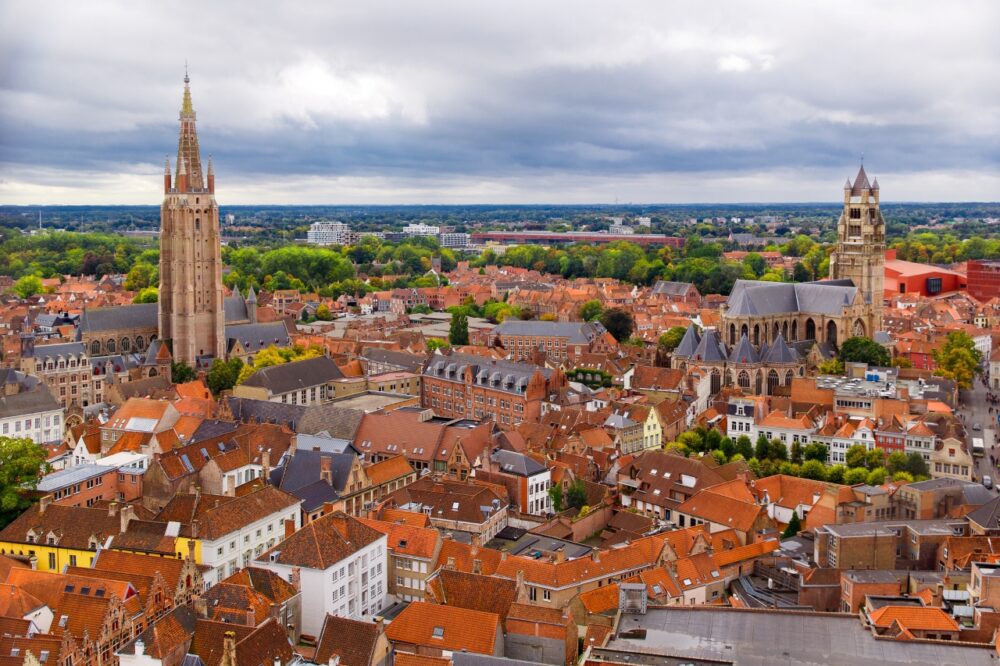
Brussels’ central location and excellent transport connections make it an ideal base for exploring other parts of Belgium. Cities like Bruges, Ghent, and Antwerp are all less than an hour away by train, making them easy day trips.
I took a short train ride to Bruges, where I spent the day wandering along picturesque canals and admiring medieval buildings. Another day, I visited Ghent, which had a more youthful, vibrant energy with its student population and thriving café culture. Whether you’re looking for history, art, or scenic views, Brussels is perfectly positioned for exploring the rest of the country.
8. The Quirky and Fun Side of Brussels Makes It Unique
Brussels has a playful, quirky side that sets it apart from other European capitals. The city is full of unexpected surprises, from the famous Manneken Pis statue (a tiny, often-dressed-up fountain of a urinating boy) to giant comic strip murals painted on buildings.
I stumbled across several colourful murals dedicated to Belgium’s famous comic characters, like Tintin and The Smurfs, while wandering through the city. There’s even a Comic Strip Museum dedicated to Belgium’s long tradition of comic art. This fun and creative atmosphere makes Brussels feel much more than just a political and historical hub.
9. The European Quarter Gives a Glimpse into the Heart of the EU
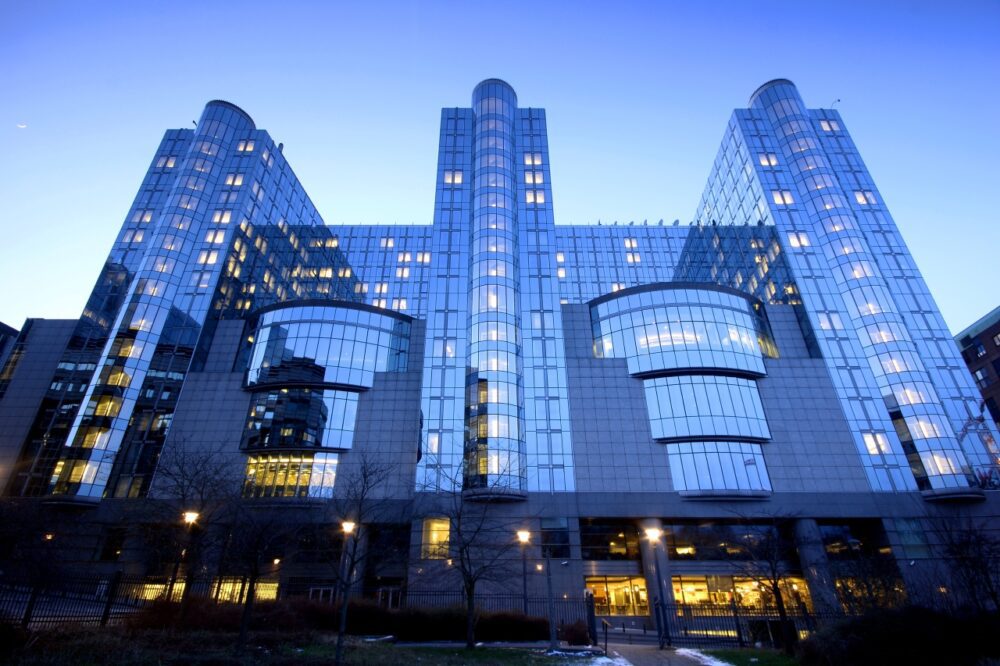
As the de facto capital of the European Union, Brussels is home to important institutions like the European Commission and the European Parliament. Visitors can take guided tours of the Parliament, visit the Parlamentarium museum, or simply walk around the European Quarter to get a sense of Brussels’ role in global politics.
I took a tour of the European Parliament, where I learned about how EU laws are made and even got to sit in the main debating chamber. Whether you’re interested in politics or not, it’s fascinating to see where so many international decisions are made. Brussels’ status as a political centre gives it an international feel unlike anywhere else in Europe.
10. A Multicultural and Lively City with a Mix of Influences
Brussels is one of the most diverse cities in Europe, with influences from all over the world. Its neighbourhoods are full of international restaurants, markets, and cultural events, reflecting the city’s role as a global hub.
I explored the lively Matongé district, known for its African shops and restaurants, where I tried some amazing Congolese food. Elsewhere, I found excellent Middle Eastern and Asian cuisine, showing just how international Brussels really is. This mix of cultures gives the city an energetic and welcoming atmosphere, making it a great place to experience different traditions in one place.
Cons – Things You Should Consider When Visiting Brussels
1. The Weather Can Be Unpredictable and Often Rainy
Brussels is not known for its sunshine, and the weather can be quite gloomy, especially outside the summer months. Rain showers are frequent, and the sky is often overcast, which can make the city feel a bit grey and uninviting. Even during summer, it’s not uncommon to experience sudden changes in weather, with sunny mornings turning into wet afternoons.
When I visited in October, I was met with drizzle on most days, and even when the rain stopped, the damp, cloudy atmosphere made everything feel a little subdued. Unlike Mediterranean destinations where you can count on good weather, Brussels requires you to pack for all conditions, including a raincoat and an umbrella. If you’re visiting in winter, expect cold temperatures, grey skies, and shorter daylight hours, which can make sightseeing less enjoyable.
2. The City is Expensive Compared to Other Belgian Destinations
As the capital of Belgium and the political centre of the European Union, Brussels tends to be more expensive than other Belgian cities like Ghent, Bruges, or Antwerp. Accommodation, dining, and attractions are all priced higher, making it a less budget-friendly destination.
I found that hotel prices in the city centre were quite steep, and even a simple meal in a mid-range restaurant could cost as much as a fine dining experience in other parts of Belgium. Beer and chocolate, despite being local specialities, were also more expensive in tourist-heavy areas. While there are ways to save money—such as eating at local markets or booking accommodation outside the city centre—travellers on a tight budget may find better value elsewhere in Belgium.
3. Some Areas Can Feel Unsafe, Especially at Night
Like any major city, Brussels has areas that feel less secure, particularly in the evening. While the city centre and main tourist spots are generally safe, some districts, such as parts of the Midi (South) station area and certain neighbourhoods further from the centre, can feel a bit rough, with reports of pickpocketing and occasional petty crime.
I stayed near the Gare du Midi, thinking it would be convenient for train travel, but I found the area around the station to be poorly lit and a bit uncomfortable to walk through at night. There were groups of people lingering around, and while nothing happened, I felt much safer in other parts of the city. As with any destination, staying aware of your surroundings and keeping valuables secure is important, particularly in crowded places like train stations and public transport.
4. Traffic Congestion and Public Transport Can Be Frustrating
Brussels has a reputation for having some of the worst traffic congestion in Europe, and navigating the city by car can be a slow and frustrating experience. Even public transport, while extensive, can sometimes be unreliable, with metro delays, crowded trams, and buses getting stuck in traffic.
I found the metro system useful for getting around, but there were moments when trams took much longer than expected due to road congestion. Some metro stations also felt a bit outdated and could use better signage for tourists unfamiliar with the system. If you plan to explore Brussels efficiently, using a mix of walking and public transport is the best approach, but be prepared for occasional delays.
5. It Lacks the Fairytale Charm of Other Belgian Cities
While Brussels has stunning landmarks like the Grand Place and the Atomium, it doesn’t have the same storybook charm that cities like Bruges or Ghent offer. Many parts of the city feel more functional and business-like, with modern buildings and administrative offices dominating the landscape.
When I first arrived, I expected a city filled with quaint, cobbled streets, but outside the historic centre, much of Brussels feels more urban and less picturesque. The European Quarter, while interesting for politics and institutions, is made up of glass office buildings that lack the character of Belgium’s smaller towns. If you’re looking for a romantic, medieval atmosphere, places like Bruges or Dinant might be more appealing.
When to Visit Brussels
The best times to visit Brussels are in spring (March to May) and autumn (September to October) when the weather is mild and the city’s parks, like Parc de Bruxelles and Cinquantenaire, are vibrant with blossoms or autumn colours. Summer, from June to August, sees Brussels at its busiest, with festivals and open-air events filling the squares and streets, although the occasional summer rain is almost a guarantee. If you’re drawn to Brussels’ famous Christmas markets, December is a magical time to visit, with festive lights, mulled wine, and holiday markets at the Grand Place—just bring a warm coat!
How to Get to Brussels
Brussels is well connected by Brussels Airport (BRU), located about 12 kilometres from the city centre, with flights from Brussels Airlines, KLM, British Airways, and other major carriers. From the airport, it’s a quick 20-minute train ride to the city centre, with direct trains running frequently. Brussels South Charleroi Airport (CRL), about an hour’s bus ride away, is also an option, especially for budget airlines like Ryanair and Wizz Air. Brussels’ location also makes it accessible by train, with high-speed connections on Eurostar from London and Thalys from Paris, Amsterdam, and Cologne.
Where to Stay in Brussels
Brussels offers a range of areas to stay in, each with its own appeal:
- Luxury: Grand Place / Centre – Stay right in the heart of Brussels near the Grand Place and its stunning guildhalls. The Hotel Amigo and Rocco Forte Hotel are elegant options offering a blend of history and modern luxury.
- Mid-range: Ixelles – A trendy area known for its art nouveau architecture and lively bar scene. Thon Hotel Bristol Stephanie and Aqua Hotel Brussels offer stylish rooms at reasonable prices, with good access to central attractions.
- Budget: Saint-Gilles – Known for its bohemian atmosphere and art galleries, this neighbourhood has budget-friendly options like MEININGER Hotel Brussels City Centre and Urban Yard Hotel, both well-connected to the city’s main sights.
Getting Around Brussels
Brussels is easy to navigate with an efficient STIB-MIVB public transport system of trams, buses, and metro lines. A single ticket or day pass can be used across all types of transport, which is cost-effective if you plan to see multiple areas. For an even easier option, the Brussels Card includes unlimited transport and entry to many attractions. Biking is also popular, with Villo!, the city’s bike-sharing scheme, providing a budget-friendly way to get around. And in the compact Old Town, walking is a pleasure—especially with so many cafes, chocolate shops, and comic murals around every corner.
How Long to Spend in Brussels
Two to three days in Brussels is ideal to explore the main highlights, from the Grand Place and Manneken Pis to the Atomium and Royal Palace. With three days, you’ll have time to sample Belgian waffles, fries, and chocolate without rushing, and even explore a museum or two—like the Magritte Museum or the quirky Comic Strip Museum. If you have extra time, consider a day trip to Ghent or Bruges, which are less than an hour away by train and offer a different side of Belgium’s rich cultural scene.
Conclusion
So, is Brussels worth visiting? Absolutely! With its breathtaking Grand Place, world-class chocolate and beer, and a fascinating mix of history and modern culture, Brussels has so much to offer. While it’s often overshadowed by flashier European capitals, the city’s charm lies in its authenticity and unique character. Sure, the weather can be a bit unpredictable, but that’s a small price to pay for the experiences you’ll have. If you’re ready to discover a city that’s as delicious as it is diverse, start planning your trip to Brussels today—you won’t regret it!
